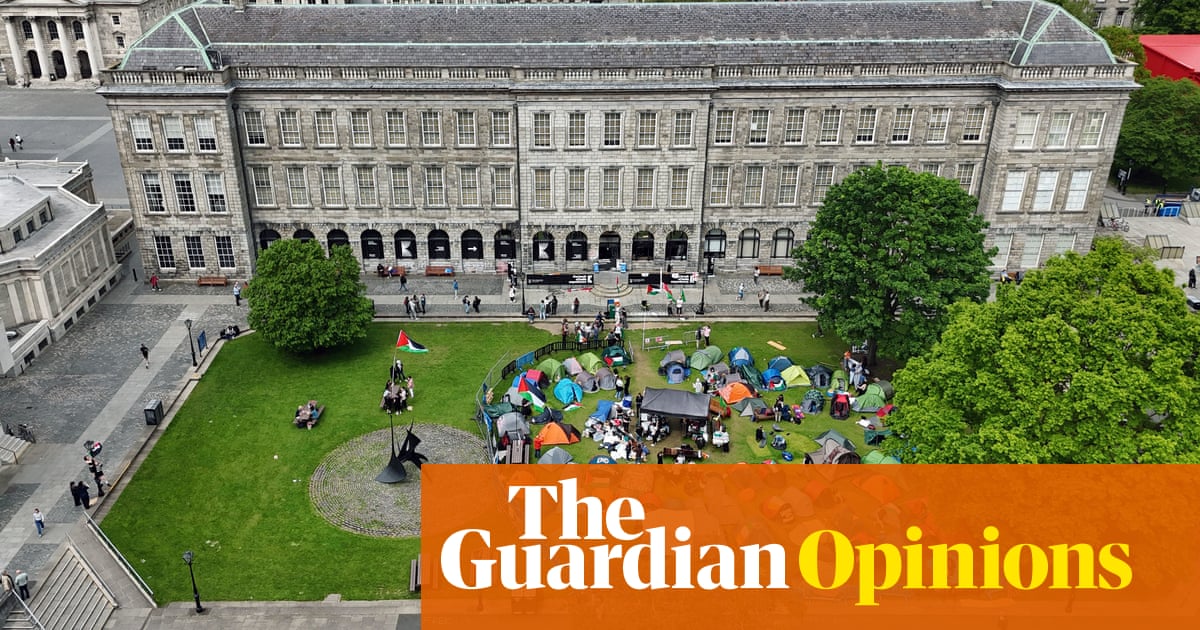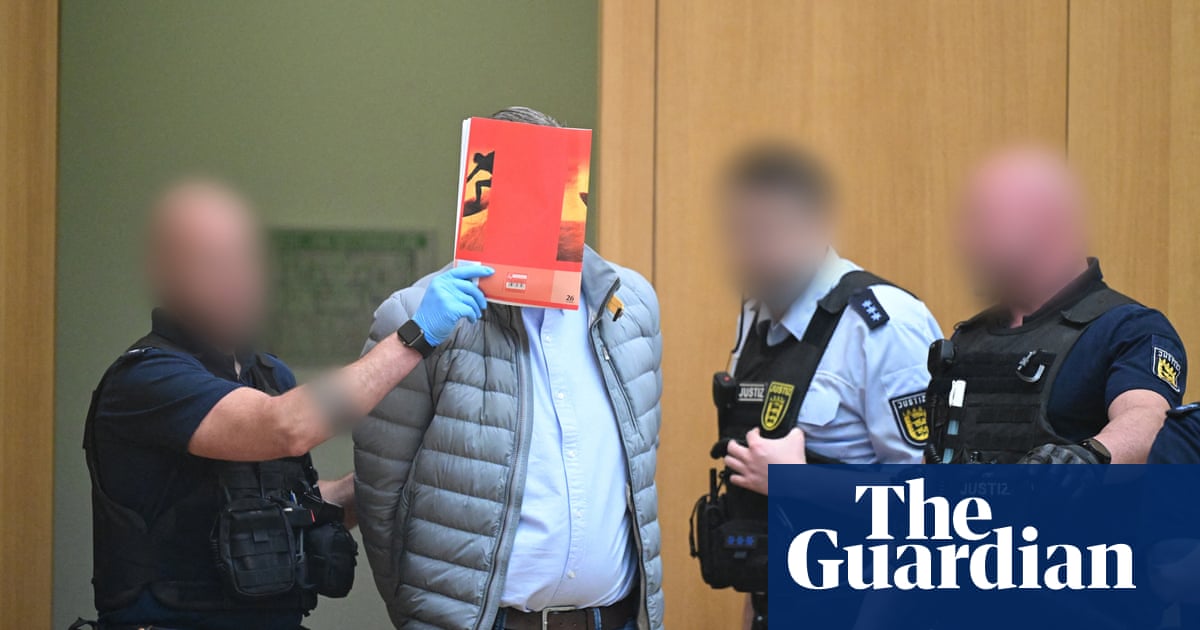
A jury has been urged to “be on the right side of history” by acquitting four defendants accused of criminal damage over the toppling of the statue of the slave trader Edward Colston.
In closing speeches at Bristol crown court on Tuesday, barristers for the accused argued that the statue, which stood over the multicultural south-west city for 125 years, was so indecent and potentially abusive that it constituted a crime.
“Make no mistake members of the jury, your decision is not just going to be felt in this court room or this city,” said Liam Walker QC, representing Sage Willoughby. “It will be reverberate around the world. I urge you all to be on the right side of history.”
Rhian Graham, 30, Milo Ponsford, 26, and Sage Willoughby, 22, are accused with “others unknown” of helping to tie ropes around the statue’s neck and using them to pull it from its plinth in Bristol during a Black Lives Matter protest on 7 June 2020.
They are on trial alongside Jake Skuse, 33, who is accused of helping roll it to Bristol harbour, where it was thrown into the River Avon. All have argued that their actions were justified by the offence the statue caused.
“Each of these defendants were on the right side of history, and I submit, they were also on the right side of the law,” said Walker. “Colston’s deeds may be historical, but the continued veneration of him in this city was not. The continued veneration of him in a vibrant multicultural city was an act of abuse.
“Colston’s statue normalised abuse. It condoned the shrugging acceptance of racism. It celebrated the achievements of a racist mass murderer. The continued existence of that statue was a racist hate crime.”
Tom Wainwright, representing Ponsford, suggested that the historical significance, and hence the value, of the statue had been increased by its toppling – that rather than destroying history, those on trial had “created history”, while at the same time correcting the record on Colston’s crimes.
“You may think it would bring the criminal justice system into disrepute if a person were convicted of criminally damaging something by adding value to it, by improving it,” Wainwright said. “Ask yourselves: what value did this statue have before 7 June 2020, and what value does it have now?”
Closing for the crown, William Hughes QC told jurors that it was not Colston who was standing trial.
“We made it clear when we first addressed you at the start of this case that we didn’t dispute that Edward Colston’s history was awash with his hands-on involvement with the slave trade,” Hughes said.
“You have heard detailed, highly emotive evidence in that regard from David Olusoga. We are not apologists for Edward Colston but he and those of his ilk are not on trial.”
Hughes said that despite the wide-ranging evidence heard of Colston’s, and Bristol’s, involvement in the slave trade; the impact of the statue on the city’s current black residents; and the failure of local politicians to take action, the trial was “not a public inquiry”, not about politics or emotions.
“This trial is about cold hard facts and it is fundamentally about the rule of law,” Hughes said. “If we can simply pull down what offends us regardless of the views of others then what statues, institutions or buildings are next, you might ask.”
Skuse, Graham, Ponsford and Willoughby all deny criminal damage. The trial continues.












